Forthcoming Events
Owing to ongoing concerns re Covid-19, all talks will be delivered over Zoom, from 6.30-8.30 pm, apart from the Annual General Meeting on 17th December. Members are not required to pre-book on Eventbrite. Non-members are welcome to attend, and they should book on Eventbrite via the link provided for each event. A link to the Zoom meeting will be sent by email prior to the event to all members, and to non-members who book on Eventbrite.
Admission:
Zoom: £5 for non-members, free for members. Free for students.
Student membership of the Society is free.
2023
22nd October
Chris Walton
‘Richard Wagner and the Austro-German conducting tradition’
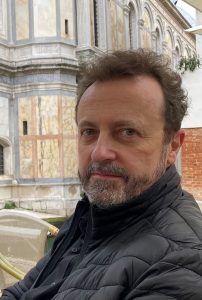
Chris Walton studied at the universities of Cambridge, Oxford and Zurich, and was a Humboldt research fellow at Munich University. He ran the Music Division of the Zurich Central Library from 1990 to 2001. He is today an honorary professor at Africa Open Institute (Stellenbosch University), lectures at the Basel University of Music, and runs two research projects for the Swiss National Science Foundation at the Bern University of the Arts – on cultural relations between Switzerland and apartheid-era South Africa, and on the history of 12-note music in Switzerland. He has published widely on German, Swiss and South African music. His latest book on Wagner is Richard Wagner’s Essays on Conducting (University of Rochester Press, 2021).
19th November
Richard Austin
“Karl Ritter – Invisible Man”
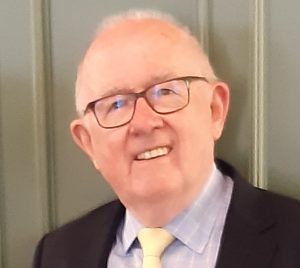
Wagner lovers familiar with “Mein Leben” will have encountered Karl Ritter in the context of the composer’s sojourn in Zurich. The autobiography is largely dismissive of him, cataloguing his failure as an aspiring conductor, his stupidity, his love of sweets and cakes, and his effeminacy. A careful reading of the main strands of Wagner’s personal correspondence and prose works, when consolidated and read in conjunction with other epistolary sources, tells a different story.
Ritter himself provides evidence which suggests that when he joined Wagner in Zurich he did so as a research assistant, although still also working on his own account, as an opera libretto of 1850 might appear to demonstrate. The talk will touch briefly on “The Ring” and the extent to which Ritter’s presence may have had an effect on the landmark cycle. There will be a more detailed exploration of the events of Wagner’s Annus Horribilis, 1854 – the year which saw the composition of “Die Walkure” and the birth of “Tristan und Isolde”.
One of the challenges of the talk will be to come to understand what Wagner meant when he wrote to Liszt in 1857: “I have determined to finish at once “Tristan und Isolde” on a moderate scale …… in that manner I must try (D.V.) to produce something myself and in my own way which will once more restore freshness and artistic conscientiousness to me.” Wagner had been working with Ritter but at the end of 1856 the two men fell out.
17th December
Annual General Meeting and Social
Hanna de Bruin – ‘Recollections of Bayreuth 2023’ and recital of Wesendonck Lieder
PLEASE NOTE: This will be an in-person event in the Edinburgh Society of Musicians, 3 Belford Road, Edinburgh EH4 3BL
6.30 to 8.30 pm
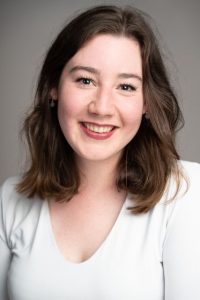
In this talk Hanna shares her experiences from attending the Bayreuther Festspiele as the Bayreuth Stipendiat 2023 of the Wagner Society of Scotland. In addition she will present the Wesendonck Lieder by Richard Wagner, the song cycle on which she has conducted research this past year.
2024
21st January
Katy Hamilton
‘The curious case of Brahms, Wagner and the Wesendoncks’
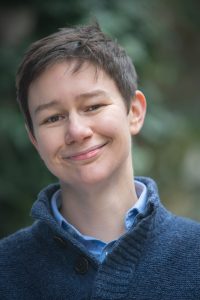
Dr. Katy Hamilton is one of the UK’s most sought-after speakers on music, providing talks for a host of organisations including the Southbank Centre, BBC Proms, Garsington Opera and Edinburgh International Festival. In addition, she regularly writes programme notes for the Salzburg Festival, Wigmore Hall and Philharmonia Orchestra, and is a frequent contributor to BBC Radio 3. Katy is an editor and contributor to several scholarly books on the music of Johannes Brahms, and has also published widely on the music of the nineteenth and early twentieth centuries.
25th February
Michael Downes
‘Further reflections on The Ring’
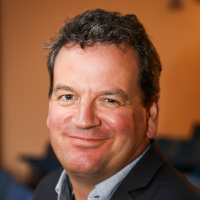
Michael Downes, MA, MPhil, DPhil, is a conductor, writer and lecturer with a particular interest in opera. He studied English and Music at King’s College, Cambridge and completed a doctorate on the music and ideas of Debussy at the University of Sussex. He has lectured for most of the UK’s leading opera companies and writes programme notes for organisations including Wigmore Hall and Snape Maltings. He collaborated with Nike Wagner, great-granddaughter of Richard, on the English version of her book about her family’s history, and has written books both with and about the British composer Jonathan Harvey; current writing projects include books about Wagner and Elgar. Following two years as Director of Music at Fitzwilliam College, Cambridge, Michael has occupied the same post at the University of St Andrews since 2008. The following year he became musical director of St Andrews Chorus, now Scotland’s largest choral society, and founded Byre Opera, with whom he has conducted operas by Britten, Janacek, Tchaikovsky, Handel and Debussy, among others. He recently led the University’s project to build the £15m Laidlaw Music Centre, which opened this year.
24th March
Flora Willson
‘Wagner, Meyerbeer and the problem of Commercial Success’
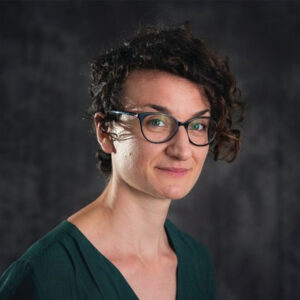
The talk will revisit the ever-contentious question of Wagner’s relationship to Meyerbeer. In particular I‘ll discuss their attitudes and approaches to commercial success – both in theory and in practice.
Dr Flora Willson is a musicologist, writer and broadcaster. She is one of the Guardian’s classical music critics and a Senior Lecturer in the Music department at King’s College London. Her academic research and teaching focus on nineteenth-century music – vocal music and opera above all – and she is currently finishing a book about operatic culture in 1890s Paris, London and New York. Flora regularly presents live events and gives talks for organisations including BBC Proms, English National Opera, Glyndebourne Festival Opera, Oxford Lieder Festival, Southbank Centre and Royal Opera House. She is also a frequent contributor to broadcasts on BBC Radio 3 and 4 and to ROH Live cinema relays.
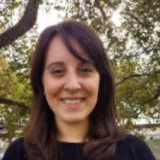
26th May 2024
Professor David Trippett
‘Wagner’s Melodies,Bellini’s Sinnlichkeit’.
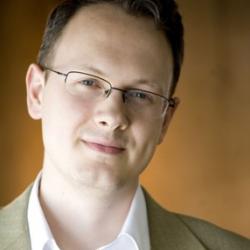
This talk focusses on Wagner’s relation to Italy and Italian culture, and sets out from the myth that (unlike Rossini) Wagner was unable to compose true melody, despite placing this at the centre of his ideal for expression in Opera and Drama. In particular, I will discuss a little-known insertion aria Wagner composed for Norma, comparing its musical ideas with Bellini’s original, and placing this in the context of musical freedoms that could extend across national outlooks. Arising from this, the talk considers the wider influence of Italianità on Wagner’s concept of sensuality (Sinnlichkeit), and it places this in the context of debates that continue to this day about Wagner’s cultural identity, asking why national categories of Italian / German continue to provoke divergent responses from scholars.
David Trippett is Professor of Music at the University of Cambridge, and a Fellow at Christ’s College. His research focuses on nineteenth-century intellectual history, Richard Wagner, and music’s role within the History of Science. He is author of Wagner’s Melodies (2013), editor and translator of Carl Stumpf, The Origins of Music (2012), and co-edited both Nineteenth-Century Opera and the Scientific Imagination (2019) and The Cambridge Companion to Music in Digital Culture (2019). Between 2015-2020 he was Principal Investigator for an European Research Council project on ‘Sound and Materialism in the Nineteenth Century,’ and in 2018 he published the first edition of Liszt’s unfinished opera, Sardanapalo. His research awards include the Alfred Einstein and Lewis Lockwood Prizes (American Musicological Society), and the Bruno Nettl Prize (Society for Ethnomusicology). Most recently, his edited volume Wagner in Context is forthcoming with Cambridge University Press.